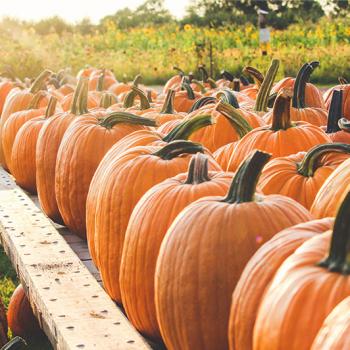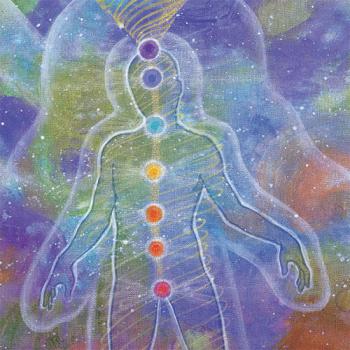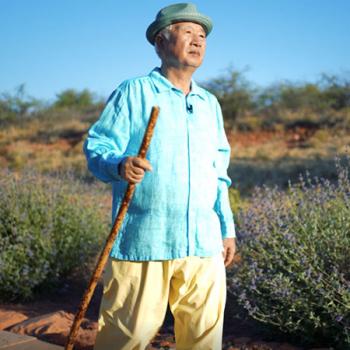![[Image credit: iStock]](https://wp-media.patheos.com/blogs/sites/658/2016/03/iStock_000058019736_small.jpg)
Yet, so many people struggle with relationships and many people these days find themselves isolated and alone. Much of our popular cultural focuses on people finding happiness through romantic relationships and creating strong family relationships, but more and more this is not the reality for people.
When Love Becomes Mature
So what is the missing piece? Why are we surrounded by other humans but find it hard to create stable intimate relationships? The problem lies in the kind of love that we allow ourselves to feel. When we fall in love with someone, it feels very intense, and in the moment we believe that it will never end and that we will “live happily ever after,” like in a fairytale. But almost always the feeling of love diminishes to some degree.
You may have, however, occasionally met an older couple who have been married forty or fifty years and still seem very happy and loving toward each other. Their words and actions are in sync, and they demonstrate true respect and gratitude toward each other. This is beautiful, but you can be certain that it is not exactly the same as it was when they were twenty-something. So what is the difference between this relationship and the one that ends in divorce or in a lifetime of uncomfortable tension?
The reality of Tao is that everything in the physical world changes. No relationship can stay in the head-over-heals romantic stage because it is like a roaring fire—it will eventually die down. But unlike a fire, you don’t have to be left with nothing but ash. If you take the right mind, you can be left with something even more rare and precious than you had before. The secret is unconditional love.
Romantic love often fails to grow to the level of unconditional love because it is based on physical attraction, mutual flattery, and alignment of personal agendas. As the initial passion subsides, the relationship may continue to be loving if the couple’s intentions remain similar—focusing on kids, buying a house, pursuing mutually supportive careers, sharing similar social goals. But all this is tested if something goes wrong. Relationships are made up of individuals, and everyone has their own process of growth and maturation. So, it is not unexpected that two people would “grow apart” as the years pass.
The Love Born of Tao
As people grow and mature, their love expands to include more and more people. At first, when we are young children, we only know the bond that we feel for our family. As we get older, we learn to have love for our own culture and for our country. Slowly, if we mature enough, we begin to love and appreciate people of other cultures, too, even if they are very different from us. This is a much wider kind of love, but it is still not all-inclusive. Only do, the love born of Tao, embraces all that is. This is the type of love that is sometimes called “unconditional love” or agape. This love holds no expectations and is unencumbered by judgements and prejudices. If you have Tao love, you just love, regardless of the circumstances.
But this is not so simple to live out in reality. Our point of view on anything is naturally self-centered; we know and feel our own wants more clearly and directly than anyone else’s. Does this mean that we cannot have good relationships? No, not at all. In fact, a relationship can become a very good impetus for self-directed growth, if you take the right attitude toward it.
You might not be able to achieve true unconditional love right in this moment, but you can always reach for it, and your relationships will be much better if you do. This requires being willing to step out of your ego’s small perspective and into the greater perspective of your True Self. It means growing up beyond the illusion of separation that creates divisions between people. The True Self is not attached to particular outcomes and does not expect anything in return for love that is given. Guided by the True Self, you can continue to love someone even when they give no love in return, and you will not stop loving someone because their appearance, behavior, or goals no longer meet your expectations.
If you want to achieve this level of love, don’t confine it to romantic situations. By definition, unconditional love is given to everyone you meet, not just to “lovers.” This includes loving those whom in the past you have deemed unworthy of love or whom have behaved badly toward you. This will take careful observation of the self to achieve, along with unwavering honesty about what lies in the darker parts of your character. But if you are brave enough to face yourself, the rewards are limitless.
Ultimately, the only way to receive more love is to give more love. This is the Law of Love. If we grasp for love from others, we find ourselves plagued with jealousy, anxiety, and insecurity. If we give love freely without expecting anything in return, on the other hand, we feel nothing but sheer joy. And as we do this more and more, our capacity to love grows beyond measure.
I like to think of the human heart as a golden rose that is awaiting its moment to blossom. Every time you drop a resentment or make a gesture of love toward someone who you might have otherwise treated with contempt, it is like a petal opening on that flower. In time, it will be a glowing flower in full bloom, sharing its beauty with all the world.












